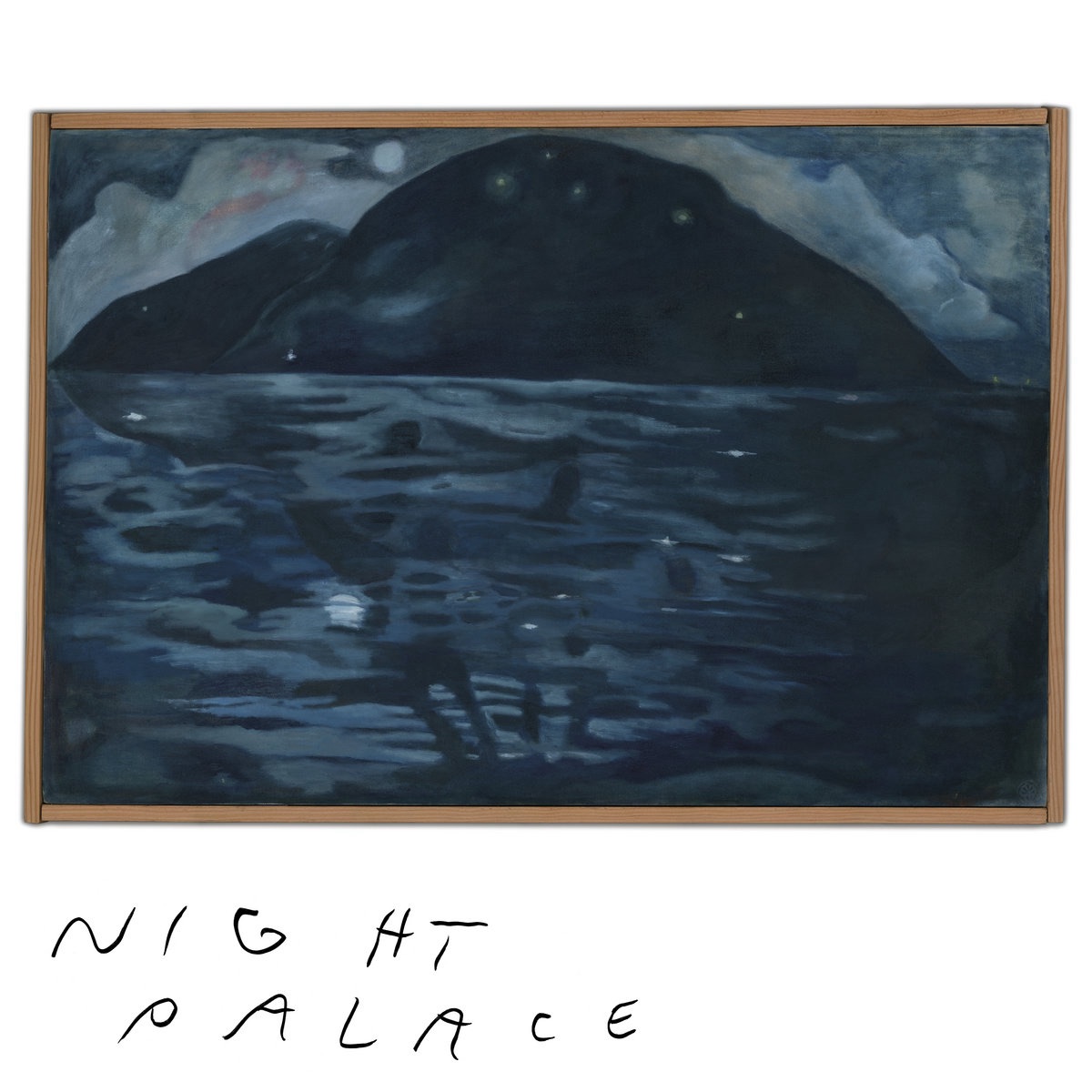Mount Eerie
Night Palace
P.W. ELVERUM & SUN
ABOVE THE CURRENT
It’s been five years since we’ve heard from Mount Eerie. In that time, Phil Elverum brought back The Microphones from a considerably lengthier hiatus with his LP The Microphones in 2020, which essentially served as an origin story for both musical projects and described some of the core unifying tenets of his work. In short, it’s become hard to think about his songwriting without associating it with a sense of our utter insignificance within the context of all of human history.
On Night Palace, Elverum’s key principles remain across 26 songs in which he brings us up to date with a slightly matured perspective defined by musings on being a single parent, getting older, and both the historic and modern-day impact of widespread bloodshed. Night Palace sees Elverum rail against the colonial past of America, with “Non-Metaphorical Decolonization” featuring distortion that gives way to plain fury. Colonialism and its impacts are an issue many on the political right and beyond willfully ignore, and Elverum decries this ignorance in no unflinching terms (the lyric “This America, the old idea, I want it to die” lands with a hefty weight). To Elverum, land isn’t something we own and divy out for capital—it’s sacred, public space.
“November Rain” and “Co-Owner of Trees” feature similar concepts regarding cultivation of land by the wealthy who’ll ultimately ignore it. “Demolition” captures the turbulence of a life that’s left Elverum with plenty of wounds—so much so that he’s at a point where he expects bad things to happen. Outside of himself, he speaks on generational ignorance embedded within our society as we simply spectate on brutal genocides taking place right in front of our eyes. It’s a common plight to have our own issues compounded by the wider injustices all around us. On the preceding track, “Stone Woman Gives Birth to a Child at Night,” he ponders whether he’s just another voice in a long line of doomsayers.
It’s easy to argue against this, in fact. Night Palace is a work that stumbles upon connection despite being so singular in perspective. “I Heard Whales (I Think)” is a picture of isolation as we follow Elverum listening to waves crackle along the coastline. We sit in this fog, hearing what could be whales or an apparition calling in the distance. It’s an exploration of the inherently lonely mindset we can have when we feel the weight of our own insignificance. You can be surrounded by people and still feel alone—no one can save you from the depths of your own mind, and Elverum continually captures that notion in his work. Simply describing this sense of aloneness which is so hard to express means a lot.
One of the most notable qualities of Night Palace is the lo-fi buzz that surrounds it, similar to The Microphones’ early work. The title track is so distorted and sharp it feels like it’s digging hooks into you. Nature also remains a key part of Elverum’s sound, dousing you in sea spray one moment before enveloping you in sheer gusts of wind the next. It’s reminiscent of the way nature is portrayed in Saoirse Ronan’s new film The Outrun. The way it uses the wild weather of the Orkney Islands as metaphors for human experiences isn’t too dissimilar to the way we encounter the seasons on Night Palace.
Phil Elverum’s career has always been about raw human expression, and that trend continues on Night Palace. He captures loneliness in a profound sense that few writers can in this collection of poems. In any large body of work the momentum is bound to ebb and flow, with some tracks leaving greater impressions than others. But Night Palace is a richly rewarding and engrossing listen all the way through. Not only does it document a songwriter pondering our very purpose and sense of being, it casts its net wider and rallies against a sense of startling ignorance that may just be one of the biggest problems with modern American life.







